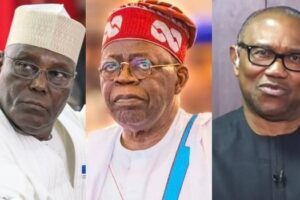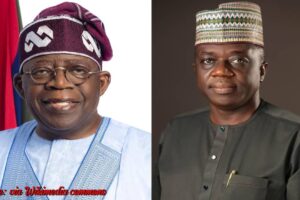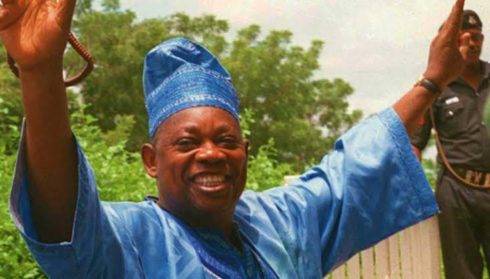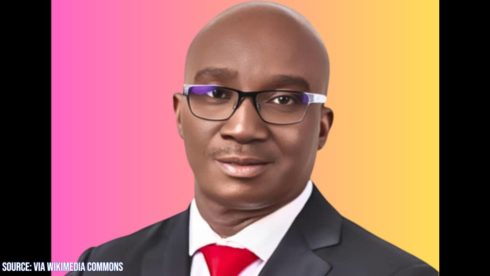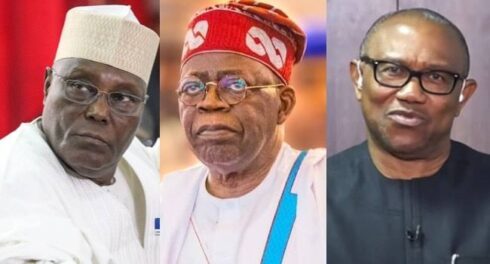Democracy Day is June 12 in Nigeria:Months leading to the annulled June 12, 1993, Presidential election in Nigeria, millions of Nigerians who felt dissatisfied with military impunity, rascality, and brutality, and wanted a return to democratic governance had no idea what lay ahead. As a matter of fact, they never knew that despite the credibility and transparency of the poll as local and international observers asserted, the eventual winner, Chief M.K.O Abiola, would be denied his mandate by then power-drunk military leader General Ibrahim Badamasi Babangida.
In a convincing and undisputable manner, Chief Moshood Kashimawo Olawale Abiola not only defeated his archrival, Bashir Othman Tofa, but he did so in grand style. According to the election result, MKO, who polled eight million votes in 19 states, also beat Tofa in his Albassa Gyadi-Gyadi ward in Kano State. Despite contesting the election with a Muslim-Muslim ticket, the businessman was massively voted for by all and sundry across the country’s nooks and crannies. The young and elderly, men and women, southerners and northerners were spellbound by the Concord publisher’s HOPE manifesto.
The Crisis Following the Annulment
Unfortunately, Gen. Ibrahim Badamasi Babangida nullified the election over flimsy reasons, plunging the country into an unprecedented crisis. Some of the valiant activists, students, journalists, and other Nigerians who were critical of IBB’s high-handedness and the annulment were tortured and jailed by the military. While some were reportedly killed, others, such as Senator Bola Tinubu, now the President of Nigeria, Professor Wole Soyinka, Anthony Enahoro, and Dele Momodu, were forced to go into exile for years. The annulment sparked widespread unrest and a relentless struggle for the restoration of Abiola’s mandate, leading to significant political upheaval.
The military regime’s brutal response to dissent saw numerous human rights abuses. Activists faced harassment, detention without trial, and torture. The press was muzzled, and public protests were violently suppressed. This period of political repression galvanized the pro-democracy movement, with many risking their lives to oppose military rule and demand the rightful recognition of Abiola’s victory. The nation’s journey to reclaim its democratic values was fraught with peril, but the determination of these heroes remained unwavering.
Honoring the Heroes on Democracy Day
As Nigerians gear up to celebrate this year’s June 12, which now coincides with the country’s Democracy Day, it’s important to remember those heroes who sacrificed their lives in the course of fighting the military to restore Chief MKO Abiola’s mandate. It’s unfortunate that it was in the course of the struggle the businessman also lost his life. He was picked up and locked away by the military for allegedly declaring himself the winner of the election. Sources said the torture meted to him in prison subsequently led to his death.
This Democracy Day serves not only as a reminder of the resilience of the Nigerian spirit but also as a tribute to those who paid the ultimate price for freedom and justice. The recognition of June 12 as Democracy Day is a testament to their sacrifices and a call to all Nigerians to cherish and uphold the democratic ideals they fought for. Their legacy endures in the continued pursuit of a just and democratic society, ensuring that their efforts were not in vain.
Kudirat Abiola: A Martyr for Democracy Day
The late Alhaja Kudirat Abiola, wife of the acclaimed winner of the annulled June 12 election, Chief MKO Abiola, remains a symbol of courage and resilience in the fight for Democracy Day in Nigeria. Known for her fearless advocacy, Kudirat stood firm in her support for her husband’s democratic mandate and the broader struggle for democratic governance in Nigeria. Despite the threats and dangers she faced, her determination never wavered, embodying the spirit of a true democrat.
Kudirat’s tragic assassination on June 4, 1996, near the 7-Up Depot in Ikeja, Lagos State, shocked the nation. She was killed alongside her chauffeur in what many believe was a targeted attack to silence her relentless activism. Observers argue that her murder wasn’t just the killing of a vocal woman but the extinguishing of a powerful beacon of democracy. Her legacy continues to inspire Nigerians to uphold democratic values and fight against oppression.
Anthony Enahoro: A Voice Against Tyranny
The late Anthony Enahoro was a towering figure in Nigeria’s pro-democracy movement. As a leading member of the National Democratic Coalition (NADECO), his efforts were pivotal in challenging the military dictatorship that ruled Nigeria. Enahoro’s relentless activism and outspoken criticism of the military regime made him a prominent target, forcing him into exile. His escape from the country highlighted the severe risks faced by pro-democracy advocates during that era.
Enahoro’s contributions to the recognition of June 12 as a significant date in Nigeria’s political history are noteworthy. He was a staunch advocate for acknowledging the democratic victory of MKO Abiola and ensuring that the annulled election’s significance was not forgotten. His death in 2010 marked the loss of a key figure in Nigeria’s democratic journey, but his legacy continues to influence contemporary political discourse and the ongoing struggle for democratic governance.
Gani Fawehinmi: The Legal Luminary
“Gani” Fawehinmi, an uncompromising lawyer and human rights activist, was a formidable force in Nigeria’s legal and political landscape. Known for his principled stance and fearless advocacy, Fawehinmi earned the moniker “Senior Advocate of the Masses” for his dedication to defending the rights of ordinary Nigerians. His unwavering opposition to the military junta, particularly in the aftermath of the annulled June 12 election, solidified his reputation as a champion of democracy.
Fawehinmi’s relentless pursuit of justice often put him at odds with the authorities. Despite attempts by figures like former military ruler Ibrahim Badamosi Babangida to neutralize his influence, Fawehinmi remained resolute. His refusal to compromise and his commitment to democratic principles made him a thorn in the side of the military regime. His legacy as a “good critic” and an advocate for the return of democracy continues to inspire new generations of Nigerian lawyers and activists.
Recognizing June 12: Democracy Day!
The decision by former President Muhammadu Buhari to officially recognize June 12 as Nigeria’s Democracy Day marked a significant shift in the nation’s political calendar. Previously celebrated on May 29, this change acknowledged the historic significance of June 12, 1993, when Nigerians cast their votes in what was widely regarded as the country’s freest and fairest election. Buhari’s recognition of this date, along with posthumously honoring MKO Abiola and his running mate Babagana Kingibe, was a long-awaited affirmation of the democratic ideals that many had fought and died for.
Buhari’s move was hailed by many as a positive step towards healing the wounds of the past and recognizing the sacrifices made by pro-democracy advocates. By honoring the legacy of June 12, the government acknowledged the critical role this date plays in Nigeria’s democratic history. However, this recognition also serves as a reminder of the ongoing challenges facing Nigeria’s democracy and the need for continued vigilance in upholding democratic principles.
A Watershed Moment in Nigerian Politics
June 12, 1993, stands as a watershed moment in Nigeria’s political history. On this day, Nigerians transcended ethnic, religious, and regional divides to vote for their preferred presidential candidate in an election that was widely seen as a true reflection of the people’s will. The annulment of this election by the military regime sparked widespread outrage and galvanized the pro-democracy movement, leading to significant political changes in the years that followed.
Despite the progress made, analysts argue that contemporary leaders often fall short of the democratic ideals that June 12 represents. While former President Buhari’s recognition of the date was a step in the right direction, many believe that current leaders must do more to honor the legacy of those who fought for democracy. Upholding the principles of transparency, accountability, and justice is essential to ensuring that the sacrifices made by figures like Kudirat Abiola, Anthony Enahoro, Gani Fawehinmi, and others were not in vain.
Table of Contents
Discover more from OGM News NG
Subscribe to get the latest posts sent to your email.


